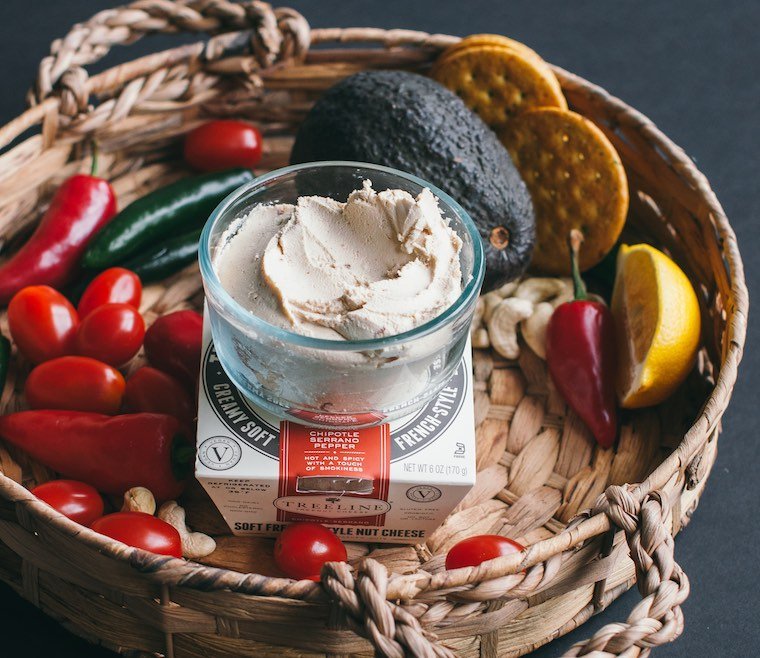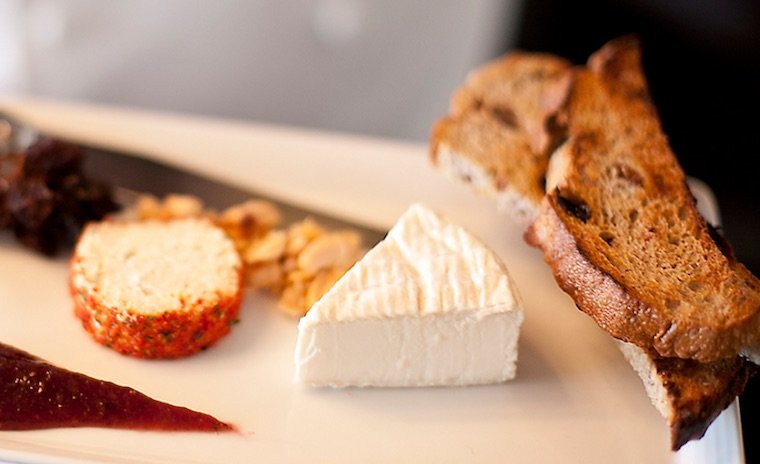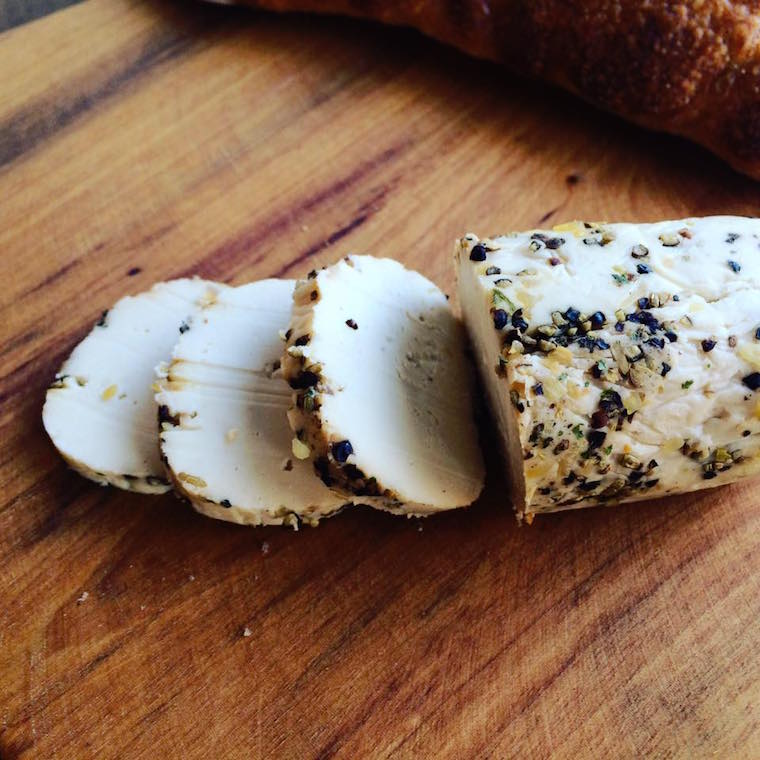A few weeks later, Treeline Treenut Cheese—another delicious dairy-free option (this one featuring cashew as its base)—let it slip to Well+Good that its offerings would start rolling out in 1,200 Kroger stores nationwide this fall. Even Daiya, the more-processed vegan brand best known for its shredded and sliced dairy-free "cheddar" and "mozzarella" options, is doing so well that this year it expanded way beyond the cheese aisle, launching everything from frozen pizza to dressing.
Could all of this growth be a sign that vegan cheese is about to go mainstream?
Sure, upscale vegan restaurants like Blossom and Candle79 have been offering dairy-free ricottas and cremas on their menus for years, but never has getting your hands on a wheel of plant-based brie been so easy. The trajectory shouldn't come as a surprise—after all, almond milk is so ubiquitous that even Starbucks acquiesced and added it to its menu—but what else is driving mainstream big-wigs to invest in the idea that nut-based, dairy-free fromages are about to hit the big-time?

{{post.sponsorText}}
Here are three reasons why you can expect to start seeing vegan cheeses among your traditional bries and ricottas very soon.

Reason #1: Vegan cheeses can be way easier to digest
Even diehard dairy cheese lovers know that overdoing it with queso might lead to some pretty uncomfortable digestive issues—and that's not even talking about the significant percentage of the population that has trouble with lactose. (Roughly 65 percent, according to some estimates.) Gas, bloating, and other not-so-awesome symptoms can crop up after you, well, cut the cheese.
Indeed, Michaela Grob—owner of the year-old Brooklyn vegan cheese shop Riverdel (yes, really)—says gastrointestinal ickiness is one of the main reasons why newbies find their way to her store. "They don't have a lactose intolerance per se, but they find cow's milk cheeses harder to digest," she says. "They tell me they feel so much better if they eat a nut cheese instead."

Reason #2: It's cheese-with-benefits
Most people aren't driven to eat cheese because they think it's super-good for them, but vegan cheeses do have benefits. In addition to almond milk-based or cashew offerings, many brands are experimenting with main ingredients like macadamia nuts, hazelnuts, and hemp seeds—all rich in good-for-you vitamins, minerals, and fatty acids like omega-3s. And if you're worried about missing out on the gut-friendly goodness that dairy cheese offers, rest assured that some plant-based brands (like Treeline) add in probiotic-rich acidophilus.
That said, not all vegan cheeses are created equal. Although many brands have very clean ingredient lists, others are still highly processed. A good real of thumb? If you don't immediately recognize all of the ingredients on a label, skip it.

Reason #3: They totally pass the taste test
Real talk: If nut-based alternatives tasted like bland mush, it would be impossible to convince traditional cheese lovers to make the switch. But they don't! The key is not expecting an exact replica of the fromages you're used to. "If you've never had vegan cheese before, don’t expect that it will taste exactly like dairy cheese, because it’s not," Grob warns. "It’s very good, but it’s different." Think earthy, satisfying, and, well, nutty.
Treeline's chef Peter Destler agrees, noting that this is why the company doesn't name its cheeses after dairy classics, like brie or feta, opting instead for names like "Scallion French-style Soft Cheese." But he also fully stands behind the product, having been a big-time dairy and meat guy before going vegan three years ago. "When I [first] tasted cheese made from cashew nuts, it was just a good food," he says. "And to this day, that’s how I look at it."
Another dairy-free option that's delicious? Nice cream—here's how to make your own. And another vegan-friendly trend you may be seeing at the supermarket is pea protein in everything.
Loading More Posts...